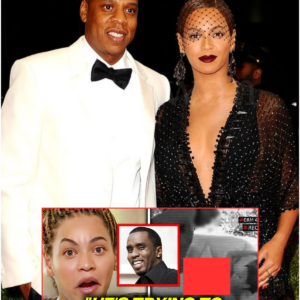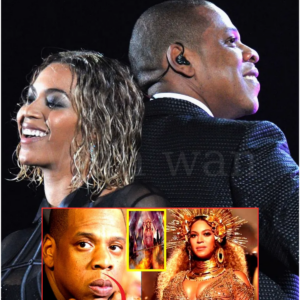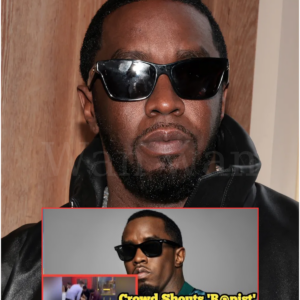The Controversy Over Tractor Supply’s DEI Policies and the Weaponization of Celebrity Endorsements
In the ongoing culture wars, even seemingly benign corporate decisions can ignite fierce debates and widespread outrage. Tractor Supply Company, known for its farm and ranch supplies, recently found itself at the center of a controversy simply for displaying Pride graphics and having Diversity, Equity, and Inclusion (DEI) policies in place. These actions, common among companies in the modern, progressive business landscape, have sparked significant backlash from certain factions.

The DEI Dilemma
Tractor Supply’s implementation of DEI policies is not unique; it’s a practice adopted by many companies striving to create inclusive and supportive environments for their employees. DEI initiatives aim to ensure that workplaces are fair and equitable, reflecting the diversity of the communities they serve. However, for some, these policies symbolize a shift towards what they perceive as overly progressive or “woke” agendas, triggering strong negative reactions.
The Role of Celebrity Endorsements
Adding fuel to the fire, celebrities and influencers often become embroiled in these debates, whether they intend to or not. The use of a country music star to amplify outrage against Tractor Supply is a prime example of how celebrity endorsements can be weaponized to further polarize public opinion. By aligning with figures who resonate with particular demographics, critics can magnify their message and galvanize support.
Chick-fil-A: A Comparative Case
Interestingly, even brands traditionally associated with conservative values, like Chick-fil-A, have DEI policies. This underscores a broader trend in the business world, where inclusivity and diversity are becoming standard practices. Chick-fil-A, despite its conservative image, recognizes the importance of fostering an inclusive workplace. Yet, this fact often gets overlooked or ignored in the heated debates surrounding DEI initiatives.
The Politics of Outrage
The phenomenon of “tater rage” – a colloquial term for the anger and indignation of certain conservative factions – plays a significant role in these controversies. For many, the primary goal is to punish perceived enemies and assert their values, even if the reasons behind their outrage may seem trivial to others. This cycle of outrage and punishment perpetuates division and distracts from substantive discussions about the actual benefits and challenges of DEI policies.
The Ease of Manipulation
It’s almost too easy to manipulate public sentiment by exploiting cultural and ideological divides. The outrage against Tractor Supply is a case in point. By framing the company’s DEI policies and Pride graphics as a betrayal of traditional values, critics can rally support and encourage boycotts. This tactic is effective because it taps into deep-seated fears and prejudices, creating an “us versus them” narrative that is both compelling and divisive.

The Broader Implications
This incident highlights the broader implications of using culture wars as a tool for mobilization. When companies like Tractor Supply become targets for simply adopting inclusive practices, it reveals a deeper societal struggle over values and identity. The ease with which public outrage can be stirred and directed against perceived adversaries speaks volumes about the current state of public discourse.
Conclusion
Tractor Supply’s “crime” of displaying Pride graphics and implementing DEI policies underscores a critical issue in today’s society: the weaponization of corporate decisions in the culture wars. As companies navigate the complexities of modern business practices, they often find themselves caught in the crossfire of ideological battles. The use of celebrity endorsements to amplify outrage only serves to further polarize and distract from meaningful discussions about diversity, equity, and inclusion.

In the end, the controversy surrounding Tractor Supply is a microcosm of a larger societal conflict. It reflects the challenges companies face in balancing progressive initiatives with the backlash from more conservative factions. As public discourse continues to be shaped by these battles, it is crucial to recognize the importance of authenticity, integrity, and the pursuit of inclusive values in the corporate world. By doing so, we can hope to foster a more understanding and equitable society, even amidst the tumult of cultural and ideological clashes.
News
Jaden Smith EXPOSES How He Was Sold To Diddy ! (VIDEO)
In a bombshell revelation, Jaden Smith has come forward with a shocking claim that has sent shockwaves through the entertainment industry. In a recent video that has gone viral, Jaden alleges that he was sold to music mogul Diddy. This…
Beyoncé Finally CATCHES Jay-Z’s FREAK-OFFS With Diddy!
In a shocking turn of events, Beyoncé has finally caught wind of her husband Jay-Z’s scandalous affairs with none other than music mogul Diddy. This revelation, made public through a video that has quickly gone viral, has sent shockwaves through…
Jennifer Lopez BREAKS the SILENCE about P Diddy FORCEFULLY going intimate with her against her will
In a stunning turn of events, global superstar Jennifer Lopez has broken her silence, revealing a harrowing secret that has haunted her for years. In a recent interview, she courageously shared her experience as a victim of forceful intimate affairs…
Jay Z released a Shocking Video Of The Ritual HisWife Beyonce Perform Every Night
Jay Z and Beyoncé: A Journey of Growth, Transformation, and Mutual Respect Jay Z and Beyoncé have long been considered the epitome of a power couple in the entertainment industry. Their journey together, marked by immense success, personal challenges, and…
Diddy Thrown Out Of Restaurant As Restaurant Guests Calls Him A R@p!st Immediately He Entered
Diddy Thrown Out of Restaurant Amidst Controversy: A Reflection on Discrimination and Public Treatment In a shocking turn of events, celebrity businessman Sean “Diddy” Combs found himself at the center of a public controversy when he was unceremoniously thrown out…
Justin Bieber OPENS UP On Diddy & Clive Davis AB*SING Him..
In a recent and revelatory interview, Justin Bieber has candidly discussed his tumultuous experiences with influential music industry figures Diddy and Clive Davis. This disclosure has left fans and observers alike stunned, shedding light on the darker side of Bieber’s…
End of content
No more pages to load







